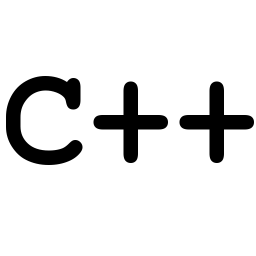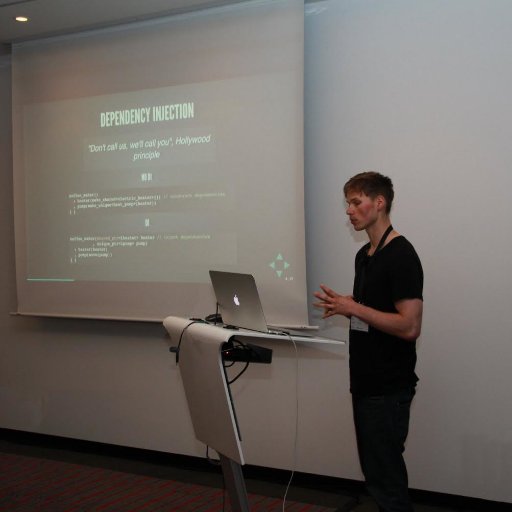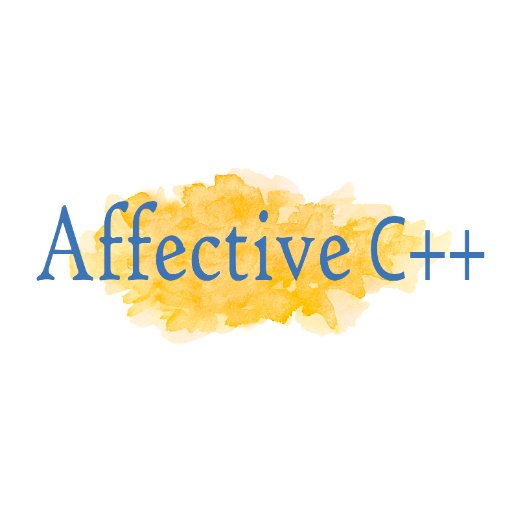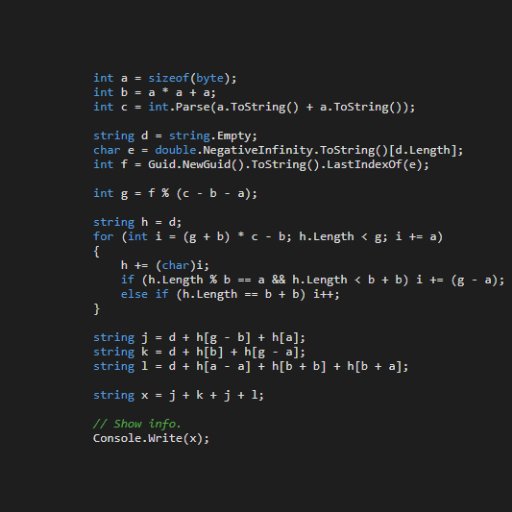你可能会喜欢
(Just in case someone missed the point: @AffectiveCpp is a humorous account, everything we post is spectacularly wrong.)
On x86, the stack grows “down” towards lower addresses. However, this is only true in the northern hemisphere due to the Coriolis effect. In Australia, the stack grows up actually. That’s because they are all looking at their monitors upside down to avoid falling off the planet.
Item 79: Choosing the right data structure is critical. Is memset too slow? Consider memunordered_set instead, to avoid the red-black tree in favor of hashing. See also memmap for key/value, mempriority_queue, memstack, etc. (thanks @jfbastien) #cplusplus #cpp #affectivecpp
But `unsigned const int` is not the same as `const unsigned int` nor `unsigned int const`. For east-const builds unsigned const int makes the high bit read-only. For west-const builds it makes everything *except* the high bit read-only. We rejected central due to the ambiguity.
Item 77: The difference between char and wchar_t is that char is for narrow characters, and wchar_t is for wide characters. Store letters like i and j in a char, and letters like m and w in a wchar_t. (Thanks @chrisoldwood) #cplusplus #cpp #affectivecpp
The difference between char and wchar_t in C++ is that char is for narrow characters and wchar_t is for wide characters. So you’d store letters like i, l, and t in a char but M and W in a wchar_t…
Really cool article about C++23! kdab.com/cpp23-will-be-…
kdab.com
C++23 Will Be Really Awesome | KDAB
C++23 is feature complete and on track to be released next year, with a few very significant changes to C++.
Pro-tip: Commas are quicker to parse than semi-colons because there are less pixels in the character. @AffectiveCpp
@AffectiveCpp this is how the professionals structure projects.
Top tip: name your directories well: put all of your template metaprogramming code in a directory called "tmp". Preferably /tmp.
programming protip! when you see x >= 0, that's a handy shortcut for x = x > 0
Item 76: Can't remember all the different casts? Replace them all by the more powerful unicorn_cast: template <typename T, typename U> T unicorn_cast(U&& u) { void* addr = &u; return *static_cast<T*>(addr); } (Thanks @bjorn_fahller) #cplusplus #cpp #affectivecpp
Top tip: name your directories well: put all of your template metaprogramming code in a directory called "tmp". Preferably /tmp.
Item 75: For owning pointers, use `int *variable` (star next to the variable you own), and for non-owning pointers use `int* variable` (star away from the variable) (Thanks @olafurw) #cplusplus #cpp #affectivecpp
int* variable; For non owning pointers, since the * is far away from your variable (which you own) int *variable; Then for owning pointers. @AffectiveCpp (ps. don't do this, use smart pointers)
Item 74: std::vector<bool> is widely regarded as a bad idea. Instead, prefer using std::basic_string<bool>, which both behaves as an actual container, avoids proxy objects, and gives you a small vector optimization for free! (Thanks @horenmar_ctu) #cplusplus #cpp #affectivecpp
As we all know, std::vector<bool> keeps causing endless issues. But did you know you can use std::basic_string<bool> instead, avoiding the terrible proxy objects? You even get a small vector optimization for free. 😈
Item 73: If you experience seemingly random crashes and bugs in your software, simply ship it with -O0 to reduce the failure rate. (Thanks @Cor3ntin) #cplusplus #cpp #affectivecpp
As we all know, std::vector<bool> keeps causing endless issues. But did you know you can use std::basic_string<bool> instead, avoiding the terrible proxy objects? You even get a small vector optimization for free. 😈
The other advantage is that it forces you to keep the number of local variables down to a manageable 26 or less.
United States 趋势
- 1. Vanity Fair 33.6K posts
- 2. Susie Wiles 78.8K posts
- 3. Mick Foley 25.2K posts
- 4. Raphinha 42.3K posts
- 5. Disclosure Day 16.2K posts
- 6. Michelea Ponce 11.3K posts
- 7. Spielberg 22.3K posts
- 8. Brad Johnson N/A
- 9. Palmer 38.3K posts
- 10. My Fellow Americans 2,280 posts
- 11. Alan Jackson N/A
- 12. Bellingham 27.7K posts
- 13. langdon 2,590 posts
- 14. Doug Williams N/A
- 15. Larian 6,539 posts
- 16. Unemployment 57.7K posts
- 17. CSC Academic All-District N/A
- 18. Chief of Staff 47.1K posts
- 19. Josh Freeman N/A
- 20. Philo 2,099 posts
你可能会喜欢
-
 Core C++
Core C++
@corecpp -
 Jason Turner
Jason Turner
@lefticus -
 C++ on Sea
C++ on Sea
@cpponsea -
 CppCast
CppCast
@cppcast -
 Andreas Fertig
Andreas Fertig
@Andreas__Fertig -
 Daisy Hollman
Daisy Hollman
@The_Whole_Daisy -
 Bartlomiej Filipek
Bartlomiej Filipek
@fenbf -
 Bryce Adelstein Lelbach
Bryce Adelstein Lelbach
@blelbach -
 CppQuiz.org
CppQuiz.org
@CppQuiz -
 Barry Revzin
Barry Revzin
@BarryRevzin -
 Vittorio Romeo
Vittorio Romeo
@supahvee1234 -
 Victor Ciura
Victor Ciura
@ciura_victor -
 Richard Smith
Richard Smith
@zygoloid -
 Kris Jusiak
Kris Jusiak
@krisjusiak -
 @[email protected]
@[email protected]
@shafikyaghmour
Something went wrong.
Something went wrong.

































































































































